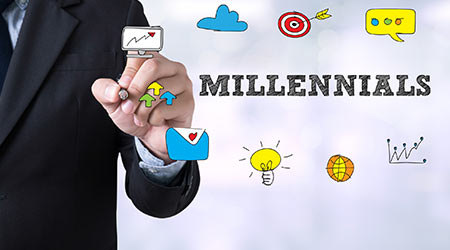
At the rate baby boomers are retiring, it is estimated that by the year 2020, at least 50 percent of the global workforce will be millennials. That said, the American Society for Healthcare Engineering (ASHE) reports that facilities need to ramp up their recruiting efforts, especially in the healthcare setting.
First, figure out what motivates the 18- to 34-year-olds of today. Research shows that millennials take pride in their work and are searching for roles where they can positively affect their world. Connecting the dots between the job and its effect on patient care and community health will help grab the attention of these prospective employees.
Managers are also encouraged to tap into millennials' thirst for knowledge by offering professional training as a path to advancement. This is appealing to new recruits, but it will also help in employee retention.
While baby boomer’s work styles tend to be more structured, ASHE reports that millennials are looking for more flexible work hours and environments. Most departments can implement small things that drive the perception of flexibility: changes in the location of team meetings, or collaboration among staff.
Finally, millennials are known for their creative thinking and problem-solving skills. They also crave constant feedback and encouragement. Encouraging these traits will help employee retention efforts.
For additional tips and statistics that support them, click here.
And to read more about managing a multigenerational workforce, click here.

 The Down and Dirty on Cleaning in Virus Season
The Down and Dirty on Cleaning in Virus Season How Surfactant Use is Expanding in Commercial Cleaning
How Surfactant Use is Expanding in Commercial Cleaning Clean Buildings Conference
Clean Buildings Conference